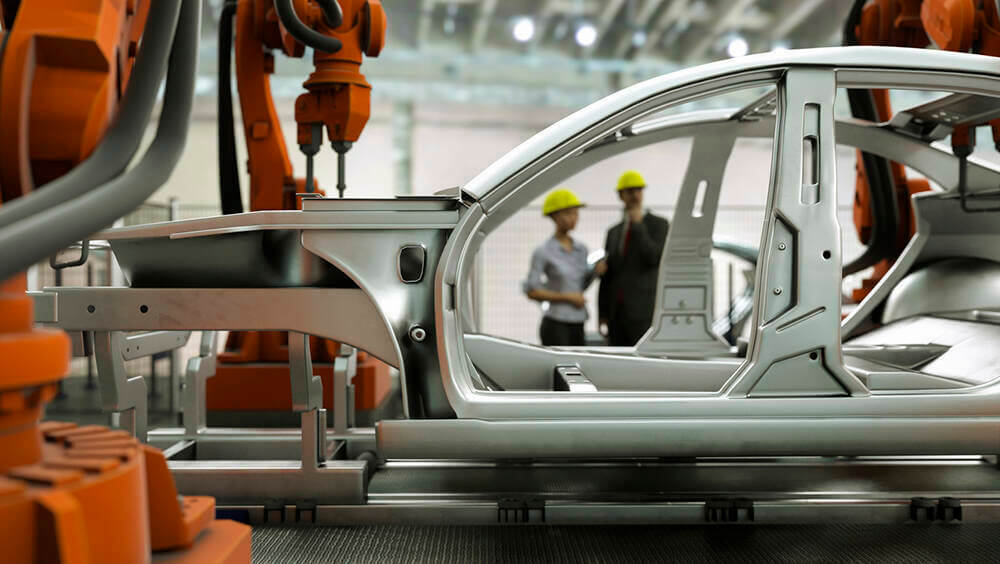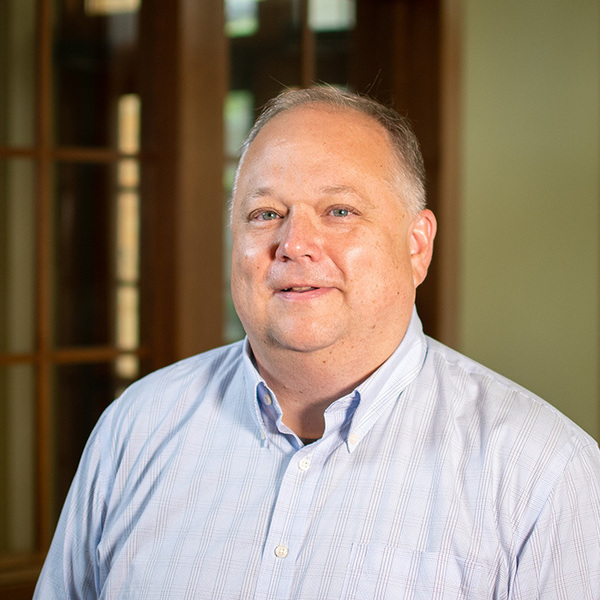ND Expert Daniel Graff on potential UAW strike: ‘We all have a stake in these negotiations’

As the strike deadline looms at 11:59 p.m. on Thursday (Sept. 14) for 146,000 members of the United Auto Workers union, many have termed “audacious” the union’s call for significant wage increases, a four-day workweek and a “just transition” for workers moving to EV production, which requires less labor than conventional cars.

As both sides ramp up efforts to seize the opportunity to advance in collective bargaining, Daniel Graff, director of the Higgins Labor Program at the University of Notre Dame, noted that the strong economy and demand for new vehicles, alongside the uncertainty of technological change, has put both the union and the corporations in a position of strength.
“Whether or not the union’s demands are realizable in this bargaining round, it is interesting to note that many of the UAW’s earlier calls for converting more productivity and profit gains into workers’ wages and benefits met with similar initial reactions,” said Graff, who has a joint faculty appointment in the Department of History and the Center for Social Concerns.
“Now many, though not all, of those ‘audacious’ demands have been redefined as essential components of a ‘good job’ today.”
The current contract negotiations are reminiscent of those in the heyday of American unionism from 1945 to the 1960s, Graff said, with UAW’s new president Shawn Fain seeming to “channel the ghost” of legendary UAW leader Walter Reuther, who helped bring about company-paid health care, pensions, paid vacations, supplemental unemployment benefits and cost-of-living adjustments to autoworkers — making them the best paid and most secure workers in the United States in the post-World War II era.
“Fain’s militant rhetoric, charging the Big 3 with greed in its refusal to share more of its recent profit gains with workers, recalls Reuther’s frequent spars that automakers hoarded ‘excess profits’ at the expense of the rank and file and the broader public as well,” Graff said.
At the same time, he noted, this is a very different moment for both sides. In the 1950s, the UAW was the largest, most powerful union in the country, GM was the world’s biggest corporation, and trends in auto employment often produced spillover effects throughout the economy.
Today, the UAW is much smaller, and the auto sector is facing “an existential crisis” brought on by global competition and climate change, he said.
“On top of the competition from cars produced abroad and those made in the U.S. by non-union competitors, the industry is faced with pressing demands to curtail greenhouse gasses as we all ramp up the efforts to fight climate change,” he said. “In the transition to electric vehicles and the calls for more mass transit, we all have a stake in the outcome of these negotiations.
“Whatever the result — which many see as inevitably leading to a rare simultaneous strike of the Big 3 — perhaps we should thank the UAW for reinvigorating the public conversation around what we expect from corporations and good jobs in the 21st century.”
Latest ND NewsWire
- Notre Dame celebrates new pope; Father Dowd offers prayersRev. Robert A. Dowd, C.S.C., president of the University of Notre Dame, offered his prayers for Pope Leo XIV, elected by the College of Cardinals today in Vatican City as the 267th pontiff of the Catholic Church.
- Collaboration with National Education Equity Lab to Create Pathways to Notre DameA group of campus units led by Notre Dame Learning’s Office of Digital Learning are building a pathway to the University for students who might not otherwise envision themselves as candidates to attend. It is an initiative made possible through a collaboration with the National Education Equity Lab, which partners with top universities to deliver actual college credit-bearing courses and supports to scholars in low-income high school classrooms across the nation.
- Clare Cullinan named valedictorian, Bennett Schmitt selected as salutatorian for the Class of 2025Clare Cullinan of South Bend, Indiana, has been named valedictorian and Bennett Schmitt from Jasper, Indiana, has been selected as salutatorian of the 2025 University of Notre Dame graduating class. The 180th University Commencement Ceremony will be held May 18 (Sunday) in Notre Dame Stadium for graduates and guests. During the ceremony, Cullinan will present the valedictory address, and as salutatorian, Schmitt will offer the invocation.
- Notre Dame’s Fightin’ Irish Battalion receives Department of Defense award as nation’s top Army ROTC programThe United States Department of Defense honored the University of Notre Dame’s Army ROTC Fightin’ Irish Battalion as the nation’s top Army collegiate program for the 2023-24 academic year. This will be the first time the unit has received the department’s Educational Institution Partnership Excellence Award, which recognizes the program’s achievements in recruiting, educating, training and commissioning leaders of character to be the next generation of military officers.
- In memoriam: Karl Ameriks, the McMahon-Hank Professor of Philosophy EmeritusKarl Ameriks, the McMahon-Hank Professor of Philosophy Emeritus at the University of Notre Dame, died on April 28 from pancreatic cancer. He was 77. Born in post-World War II Germany, Ameriks’ family emigrated to the United States when he was a child, and he grew up in Detroit, Michigan. He received his bachelor’s and doctoral degrees from Yale University. He came to the Department of Philosophy at Notre Dame in 1973 during a formative time for the department, which had transitioned from a predominantly Thomist focus to the more analytical American philosophy in the 1960s.
- Senior James Reintjes named 2025 Yenching ScholarUniversity of Notre Dame senior James Reintjes has been named a 2025 Yenching Scholar. He is one of 114 Yenching Scholars overall, representing 40 countries and regions around the globe. He is Notre Dame’s 12th Yenching Scholar and its 9th since 2018.













